Writing productivity is one piping hot topic at the mo.
In our last two-part post, Marek revealed some awesome inside tips and tricks on how to get drastically more productive with blogging. And we’re going to unleash some even awesomer ones today.
Why?
Because the world is waking up to the fact that content is king. And consistency is queen. So the faster, better and more efficient you can write, the more successful you’ll be. Simples.
The tips you’re about to devour come from 11 of the world’s most savvy writers. And I owe this entire blog post to Sharon Crosby – a language tutor, with 6 years experience, and young writer, who is currently working on her first science fiction novel (watch this space!)
Inspired by my epic blog post, ‘22 Content Marketing Experts Reveal the Secrets to Writing Killer Blog Posts!‘, she rounded up this amazing list of expert tips and kindly presented it to us as a guest post.
Cheers Sharon!
Whether you’re a blogger, copywriter, journalist or author – the following array of wisdom will make your life MUCH easier.
So listen up.
11 secrets from leading experts on how to increase writing productivity (by sharon crosby)
Writers are getting tired of all the articles revealing ‘magical ways on how to increase writing productivity’. The reason is that not all of the suggested tips on the Internet can be effective and appropriate; very often they have a generic approach and are written by inexperienced writers.
“If only writing experts could share their experience and write down their best productivity tips all in one post…” – you may think.
The following article presents 11 tips on how to increase writing productivity from world-leading, professional writers. The experts were asked to answer the two following questions:
- How do you usually increase your writing productivity?
- What should writers focus on at the beginning of their career?
Be prepared to absorb the wisdom contained in these experts’ answers and put it into your daily writing practice.
#1. Mary Jaksch
“To be more productive, you need to learn how to write faster.
The key point is to separate the actions of creation and editing. This means embracing bad first drafts!
When you try to write your first draft well, you are creating and editing at the same time (activities which activate different areas of the brain). This is like being in a car and stepping on the accelerator and the brake at the same time. You won’t get anywhere fast!
I would recommend a simple way on how to improve your writing – carry a notebook with you at all times. Capture ideas in it, doodle in it, and collect snippets of dialog around you, and use it for your daily writing practice. You can use a digital notebook, or buy an attractive real notebook to handwrite your ideas.
A great way to get those writing juices flowing is to open a fresh page of your notebook and write non-stop for 5 minutes by the clock. It doesn’t matter what you write, just don’t stop for 5 minutes!”
Mary Jaksch is a Chief Editor of Write to Done.
#2. Kristen Lamb
“A great way to increase writing productivity is to set a goal and then make it public so others can hold us accountable.
When we are new, we must work with self-imposed deadlines so no one will “fire” us if we don’t write. But, make the goal public to friends, family and social media and then peer pressure is fabulous for motivation.
The thing young writers should do is read, read, read. Read craft books, blogs, fiction, nonfiction. Watch movies, read articles, inhale miniseries.
You are filling your creative well.
How much material we have to draw upon depends on how aggressive we are at “filling the reservoir.” Then write. Keep going. Do NOT stop and edit. We learn by DOING and most people cannot WRITE a full eight hours a day (even us pros). So parcel out time for learning and researching, then write, write, and write some more. We can’t edit what we never WRITE. No half-finished “perfect” book has ever become a runaway success.
Finished books sell better than unfinished ones.”
Kristen Lamb is the author of the best-selling books “We Are Not Alone: The Writer’s Guide to Social Media” and “Are You There, Blog? It’s Me, Writer”
#3. Jo Linsdell
“The more excited I am about a project, the more productive I am.
The trick to increasing my writing productivity is therefore to get super excited about the project and why I’m doing it. It’s a great motivator.
My advice is get the words down.
You can’t edit a blank page. You need to get the story out of your head and down in writing. It doesn’t matter if it’s not perfect. You can work on making it better later.”
Jo Linsdell is an award winning best selling author, who runs Writers and Authors Blog.
#4. Jessica Millis
“I have always believed that the secret of high productivity lies mainly in two things – discipline and motivation. Your lifestyle does affect your work and as long as you have the wrong life schedule your productivity will not achieve its maximum potential.
Set up the time when you work and when you have breaks, make your own working place at home, avoid distracters that surround you and it will help you to concentrate on your work.
Also you need to be highly motivated by the right goals; you need to replace such general goal as “to get fame and popularity” by small ones like “to write 1000 words per day” or “to get published till the next month”. Only practical goals can motivate enough.
I would recommend to all young writers to work a lot for their dream as no one ever truly succeeded without hardworking. You should not be satisfied with what you’ve got, but should always seek for more. Seek for any helpful contacts, attend additional workshops, look for publishing opportunities and for any other chance to get experience”.
Jessica Millis is a blog editor and a writing expert at Essaymama
#5. Therese Walsh
“I increase my writing productivity tremendously by turning off social media and sometimes shutting down my Internet access all together. I’ll then do a set of noise-cancelling headphones, listen to something meditative and without words, and begin writing.
I would recommend young writers to be willing to hear criticism of their work, and know that going into writing can be a humbling profession. Consider that there are better ways to write (a character, a scene, a story) than the way you’ve chosen. Do the hard slog that is revision when you know in your gut that it’s the right thing for the story”.
Therese Walsh is a co-founded of Writer Unboxed, an award-winning website and online writing community.
#6. Bamidele onibalusi
“I have found focusing on developing a daily writing habit aimed at completing my projects slowly but consistently to be more effective.
For example, if I want to write a 30,000 words ebook, it is much more productive to focus on writing 1,000 words daily no matter what, every day for 30 days, than to try to write a lot on a particular day, and then miss some days or weeks in between.
Give yourself a target that you have to meet daily, and make sure it isn’t in any way overwhelming. 1,000 words daily is small and doable but at the end of a year that’s 365,000 words, which is massive!
As writers, we tend to focus a lot on what we can do in the short term, and we fail to realize the impact of short, consistent action in the long run. Focusing too much on doing a lot right NOW will often result in overwhelm, staring at the blank page for hours and eventually doing nothing for a day.
However, aiming to write just 500 words, or just 1,000 words for the day is practical. It is very easy for your brain to grasp that, and very soon you would have developed an habit that will help you achieve a lot more”.
Bamidele Onibalusi is a freelance writer from Nigeria who runs Writers in Charge blog with his team.
#7. Phil James
“Ask yourself this simple question: Can I complete what I need to complete in the next five minutes? If so, do it; if not, write down step-by-step what you need to do and set a five minute goal for completing every step.
After a while, you’ll stop worrying about the bigger picture, and you’ll be successful because you’ll prioritize detail over anything else.
I would like to advise young writers to be adventurous and experimental, but don’t stop writing when you feel tired or self-conscious about your work. Train to resist the urge to stop. Laziness is a far more harmful deterrent than a lack of skill.”
Phil James is a founder and current Editor-in-Chief of Qwiklit.
#8. Shanan Haislip
“Doing something that I find scary – pitching an article that’s due on a deadline, signing up for a pitch session at a writing conference. I thrive on the pressure to perform.
Left to my own devices, I would probably never write anything but to-do lists.
Advice for young writers: develop a skill for homaging the writers whose style you like best. Learn what it is about their writing that makes you enthusiastic. Whether it’s the lyricism of Annie Dillard or the gaudy weirdness of Kurt Vonnegut, use these things to inform your own writing practice. And never stop learning new tactics and strategies from the greats.
Focus on clarity and elegance in language.
There are plenty of writers out there who can construct a beautiful story but who struggle with turning a phrase, or with using vivid metaphor or economy of phrase. Learn to love the sounds that words make and your stories will stand out.”
Shanan Haislip is a full-time business writer, an essayist, and webmaster at The Procrastiwriter.
#9. Owen Thomas
“I like to create a dedicated single-site browser app for the content-management system I write in. (I usually write directly in the CMS, rather than transferring text from Word or Evernote.)
That way, I feel like I’m doing the specific task of writing, rather than just looking at one of a dozen open browser tabs.
The best way to learn to write is to read first, then write. Read others, notice how they use words and structure arguments, and take notes. Then get those words out.”
Owen Thomas is the editor-in-chief of ReadWrite.
#10. Andy Mort
“I write every day with a word count objective.
If I hit that goal then I’ve had a successful day (this usually happens before breakfast). When I’m not writing, I make sure I’m reading as much as possible. I do this in an active way, noticing what gets my attention and consciously applying some of these techniques to my own daily practice.I write every day with a word count objective.
Allow yourself to explore ideas and don’t be afraid of surprising yourself.
We often feel compelled to play it safe, and reign in what we give ourselves permission to write, but by prioritising quantity over everything, writing everyday, and exploring different terrain, you will discover all sorts of avenues and inspiration.
This is how you find your voice.
Voice is everything, especially in the early days when you need to find it. Feel free to borrow ideas from writers whom you admire. Get into their work, uncover what you connect with, and learn from that; experiment and apply it in your own writing. Don’t worry about the technical side of the craft, that will evolve along with your voice, the more you read and the more you write.”
Andy Mort is a musician, writer and the founder of Sheep Dressed Like Wolves.
#11. Jennifer Mattern
“I’ve tried about every productivity hack in the book, and what I’ve found is that good old-fashioned lists, schedules, and plans are what help me the most.
I set a schedule where I can work productively (very early morning hours in my case), I have a basic routine in place for regular activities, and I’m very attached to to-do lists. Precious little motivates me to work productively more than being able to check something off my list.
Something new writers should do, but often don’t, is consider their long-term plans from the start. That means picking a specialty, really getting to know that target market, setting appropriate and sustainable rates, and starting to build their network and professional platforms early.
When a writer only focuses on “right now,” they run the risk of not being around tomorrow.”
Jennifer Mattern is a professional blogger, freelance business writer and author, she owns All Indie Writers.
Share, share, share away!
Feeling more productive already?
You should be.
And it would only be fair of you to share this value-packed post with all your lovely friends and followers…
Big thanks again to Sharon for making this all happen.
Cheers,
Konrad x
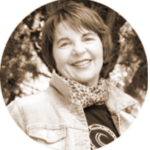
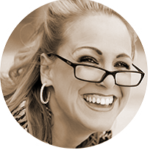
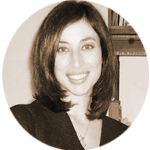


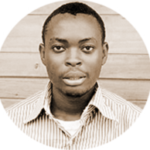
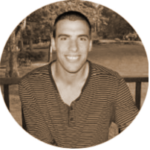


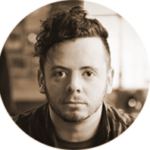

Loved reading your blog. We write to taste life twice, at the time and all things considered.